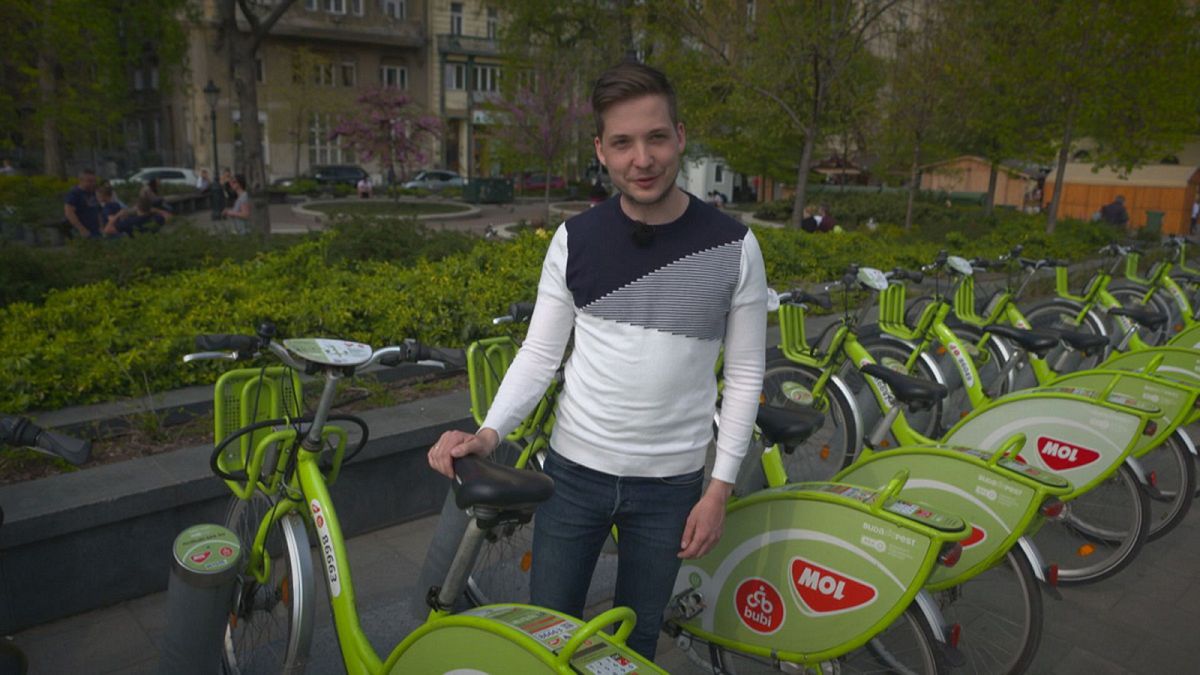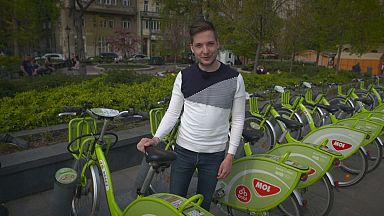Budapest is working to become a bike-friendly city, with a growing network of dedicated paths, and a fleet of shared bicycles, known as Bubi bikes.
Budapest is working to become a bike-friendly city, with a growing network of dedicated paths, and a fleet of shared bicycles, known as Bubi bikes.
These green machines are free to use for the first 30 minutes, and have become a regular sight in the Hungarian capital.
"The MOL Bubi is an important part of Budapest's community transport network. Right now there are 128 bike stations and more than 1,500 bicycles available," says Balázs Both, Head of Marketing for Budapest's public transport company BKK.
The bikes are built in Hungary to be robust and tamper-proof, and have some of the standard features that municipal bike users in western Europe have become accustomed to, such as three speed gears, puncture-proof tyres, dynamo-driven lights, a front basket and in-built lock.
Local users pay 60 euros for a yearly subscription, while those visiting the city can sign up for shorter periods if they wish. You pick up a Bubi using a card, or a series of codes, as Bubi regular Simon Nyirő explains: "So you choose the bicycle that you want, you go to the back and type in your phone number and then it asks for your pin code. You wait a second, then it gives you the bike, which you have to pull out firmly. Then you adjust the seat pin to the height that's right for you."
The Bubi bike network was supported by the EU. The project began in 2014, cost 3.3 million euros (1059 Mln HUF), of which 2.8 million euros (900 Mln HUF) was financed through EU Cohesion Policy.
Since launch Bubi users have completed over 2.5 million journeys. The network is growing, with the 128th Bubi station installed in the campus of the Budapest University of Technology.
The stations are installed in just a few hours, as they are pre-fabricated and just need to be assembled on site and screwed to the pavement. The stations are off-grid, running on solar and battery power throughout the year.
City authorities see the Bubi bikes as a complement to other transport options, like the tram and metro, with usage data revealing that locals ride the bikes for short trips.
"They are cycling for short distances with them, and we are trying to develop accordingly, to have the stations situated more densely," says Both. "On average, half a kilometre, 500 metres, the distance between two stations, this seems optimal according to the current data that we have."
So is Budapest becoming more bike friendly? Bubi user Evelyn Piszter believes so: "My experience is that the drivers are paying more attention to us bikers, and there are more and more bike paths."
The city now has 300 kilometres of cycle routes, including dedicated paths and lanes on roads. The Bubi team believes that despite traffic still being an issue in the city centre, they are on the right track.
Both tells Euronews: "You can't expect that Budapest immediately becomes a city full of bicycles, like Amsterdam. But if you look at the situation four years ago, you can see the development, and if it continues in the future then Budapest will become more bike-friendly and more liveable."

